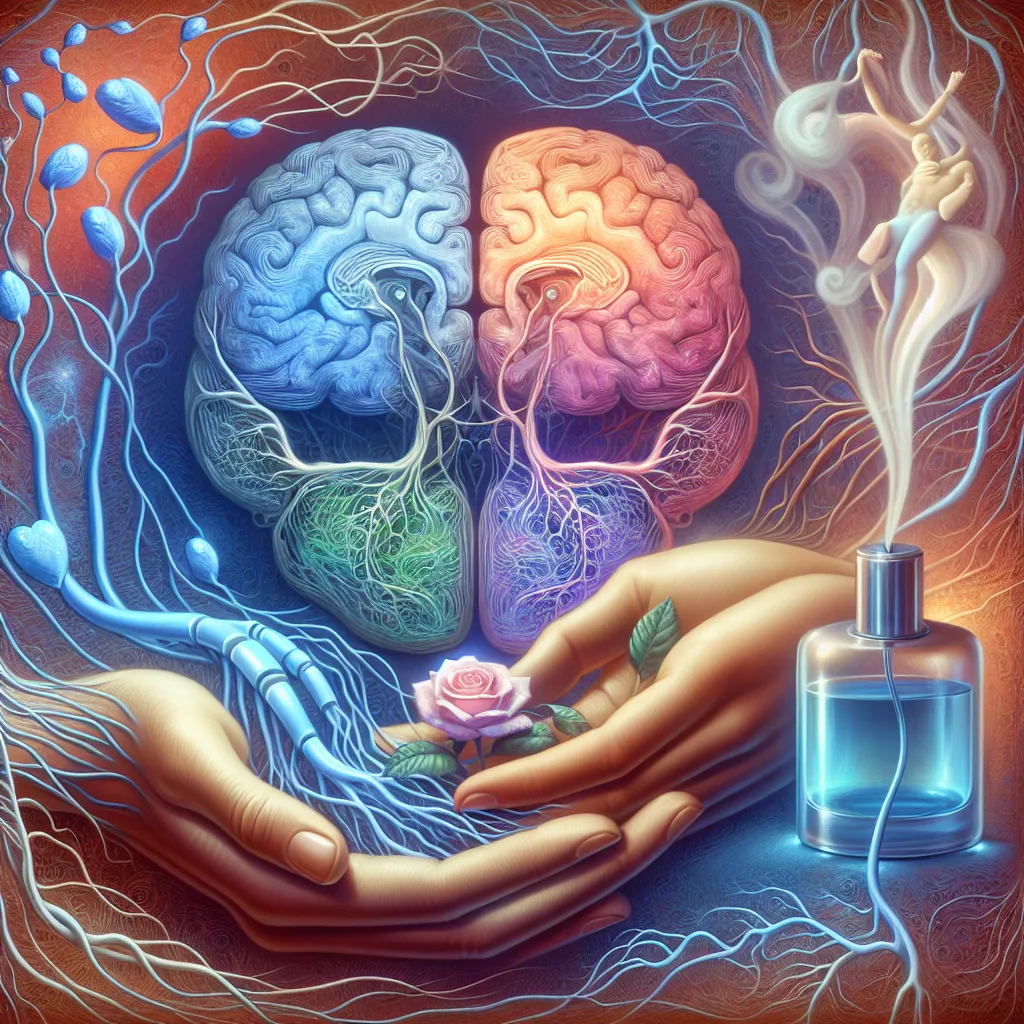Hello, relationship seekers!
Today, we’re diving deep into an important question about relationships: “What neuroscientific evidence links a tendency to cheat with genetic factors?”
The Direct Answer
Studies suggest that there may be a genetic component to infidelity. While there’s no single “cheating gene,” several genetic variants have been associated with a higher likelihood of infidelity. These genetic factors can influence traits like impulsivity and novelty-seeking, which have been linked to cheating. However, it’s crucial to remember that genetics doesn’t determine destiny. Environmental factors, personal choices, and relationship dynamics also play significant roles.
Now, let’s explore the extensive evidence and details that support this answer:
1. Genetic Factors and Infidelity
Genetics can influence behavior, including the propensity to cheat. This section will delve into the genetic factors associated with infidelity.
A. The Role of Dopamine
Dopamine, often called the ‘feel-good hormone,’ plays a critical role in pleasure and reward-seeking behaviors.
– Expert Perspectives: Leading geneticist Brendan Zietsch, in his study, found that variations in the DRD4 gene, which affects dopamine reception in the brain, are linked to infidelity. Similarly, Dr. David P. Schmitt highlighted that high dopamine levels could trigger romantic or sexual novelty-seeking behaviors.
– Psychological Research: The DRD4 gene variant is also associated with risk-taking and impulsivity, traits often seen in individuals who engage in infidelity.
– Real-World Examples: Consider the case of ‘John,’ who struggled with impulsivity. Despite being in a committed relationship, John found himself continually seeking new romantic and sexual experiences, eventually leading to infidelity.
B. The Vasopressin Gene
Another gene linked to infidelity is the vasopressin receptor gene.
– Historical Context: Vasopressin has been extensively studied in voles, where different expressions of the vasopressin receptor gene led to variations in monogamous behavior.
– Common Challenges: Individuals with certain vasopressin gene variants may struggle with long-term monogamy more than others.
– Practical Applications: Understanding this genetic factor can help individuals better navigate their relationships, seeking professional help to manage potential difficulties if necessary.
C. Testosterone and Cheating
While not exclusively genetic, hormonal factors like testosterone levels can be influenced by genetics and are linked to cheating.
– Expert Perspectives: Dr. Bhasin, an endocrinologist, found that high testosterone levels are associated with risk-taking and aggressive behaviors, traits that can lead to infidelity.
– Psychological Research: A study in ‘Hormones and Behavior’ found that men with high testosterone levels were more likely to cheat.
– Real-World Examples: Case studies have shown that individuals with high testosterone levels, like ‘Mark,’ may find themselves more prone to infidelity due to increased sex drive and risk-taking tendencies.
2. The Brain and Cheating
Beyond genetics, let’s explore how brain structure and function relate to infidelity.
A. The Amygdala and Infidelity
The amygdala, a brain region associated with emotional processing, also plays a role in infidelity.
1. Amygdala Size and Cheating: Research led by Steven L. Bressler discovered that individuals who had cheated had larger amygdalae, suggesting a link between amygdala size and propensity to cheat.
2. Amygdala Function and Emotional Regulation: The amygdala plays a crucial role in emotional regulation. Individuals with larger amygdalae may experience emotions more intensely, potentially leading to impulsive decisions like cheating.
3. Amygdala, Anxiety, and Infidelity: Increased amygdala activity is linked to anxiety and insecurity, which could drive some individuals to seek validation outside their primary relationship.
B. Prefrontal Cortex and Infidelity
The prefrontal cortex, responsible for decision-making and impulse control, is also implicated in cheating.
– Expert Perspectives: Dr. Abigail Marsh found that individuals with less active prefrontal cortices are often more impulsive, leading potentially to behaviors like infidelity.
– Psychological Research: The prefrontal cortex’s role in moral judgment and ethical decision-making can influence choices about monogamy and infidelity.
C. Neurotransmitters and Cheating
Neurotransmitters like serotonin and oxytocin play a role in bonding and can influence infidelity.
– Serotonin and Mood: Low serotonin levels can lead to feelings of dissatisfaction, possibly driving individuals to seek happiness outside their primary relationship.
– Oxytocin and Bonding: Known as the ‘love hormone,’ oxytocin promotes bonding. Lower levels could potentially make an individual less likely to remain monogamous.
3. Environmental Interactions and Genetic Factors
Genes don’t act in isolation; they interact with environmental factors. This interaction can influence behaviors like infidelity.
A. Nature vs. Nurture
The nature vs. nurture debate is highly relevant to the question of infidelity.
– Genetic Predisposition: While genetic factors can predispose individuals to certain behaviors, they do not predetermine outcomes.
– Environmental Influence: Environmental factors, including upbringing, past relationship experiences, and current relationship satisfaction, can significantly influence infidelity.
B. Epigenetics and Infidelity
Epigenetics, the study of how environment affects gene expression, also has relevance to infidelity.
– Epigenetic Changes: Life experiences can lead to epigenetic changes, altering how our genes function and potentially influencing behaviors like infidelity.
– Stress and Epigenetics: Chronic stress can lead to epigenetic changes that increase impulsivity and risk-taking, potentially impacting cheating behaviors.
C. Gene-Environment Interactions
Individuals with certain genetic profiles may be more susceptible to environmental influences on infidelity.
– Differential Susceptibility: Some people may be more sensitive to environmental factors due to their genetic makeup, leading to a higher likelihood of infidelity under certain conditions.
– Environmental Triggers: For those genetically predisposed to infidelity, certain environmental triggers (like relationship dissatisfaction or opportunity) may increase the likelihood of cheating.
4. Additional Context and Considerations
It’s essential to remember that while genetic and neuroscientific factors can influence infidelity, they do not excuse it.
A. Personal Responsibility
While genetics may predispose us to certain behaviors, we ultimately have the power to make choices and control our actions.
B. Relationship Dynamics
Factors such as relationship satisfaction, communication, trust, and commitment significantly influence infidelity.
C. Ethical Considerations
Understanding the biological underpinnings of infidelity does not justify or excuse it. Infidelity can cause significant harm to both partners.
Conclusion: The Definitive Answer
Based on all the evidence we’ve examined:
– Genetic Factors: Variations in the DRD4 and vasopressin receptor genes, as well as testosterone levels, are linked to a higher likelihood of infidelity.
– Neuroscientific Factors: Brain structures like the amygdala and prefrontal cortex, along with neurotransmitters like serotonin and oxytocin, play roles in infidelity.
– Environmental Interactions: Environment interacts with genetic factors to influence infidelity, with factors like stress and relationship satisfaction playing crucial roles.
– Final Verdict: While there is neuroscientific and genetic evidence linking to a tendency to cheat, these factors are not deterministic. They can predispose individuals to cheat, but personal choice, environmental factors, and relationship dynamics play crucial roles.
Understanding the complex interplay of genetics and behavior can help us better navigate our relationships. It’s important to remember that while our biology can influence us, it doesn’t define us. We have the power to make choices and shape our relationships in healthy, positive ways.



